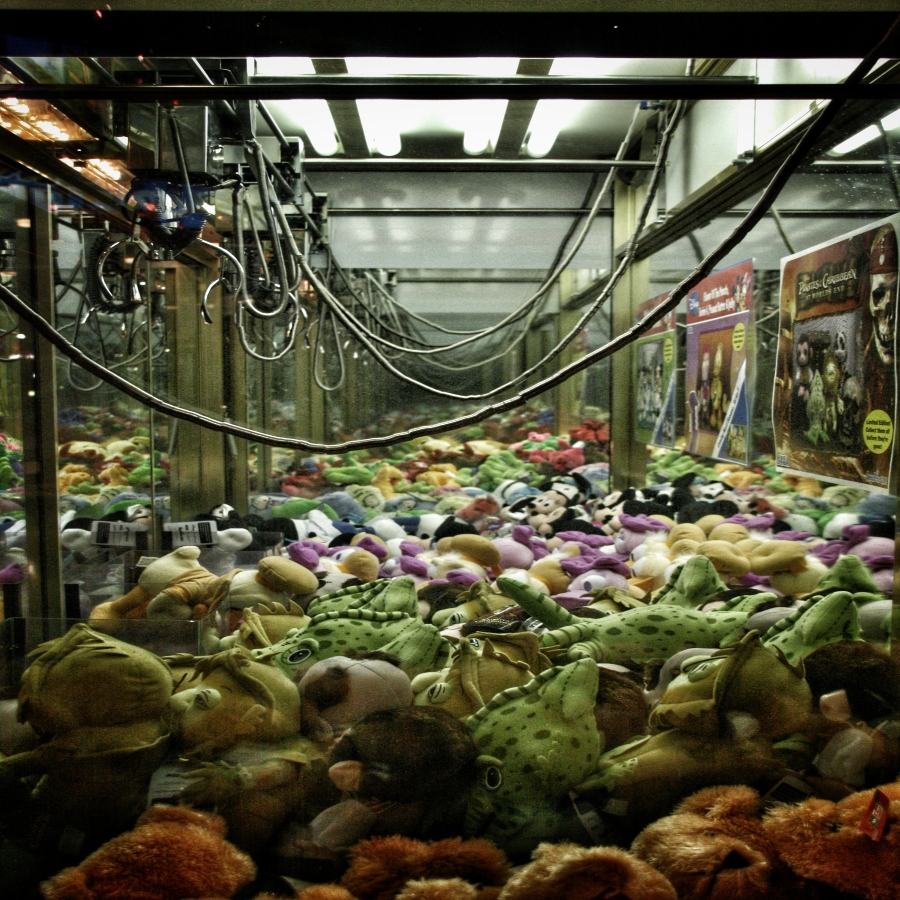Mom and I got really into the arcade claw machine one elementary school summer.
Handful of tokens, a frappé from the neighboring cafe, ready. We aren’t even coffee drinkers.
Our eyes scan a sea of tightly packed yellow polyester lions with auburn manes.
“哪個?”
“That one.”
We speak different first languages, but I understand her question, and she can see which plush toy I’m pointing at.
This linguistic margin is bridgeable; it’s nothing compared to our contradicting visions for how daughters, mothers, ought to be:
“你怎麼變成那麼黑? 頭髮亂七八糟. 胖死掉.” How did you get to be so dark? Your hair is such a mess. So fat we could die.
No one else but her cares when I play in the sun or let my hair get wild. No one else calls me fat.
“這是你爸的錯.” This is your dad’s fault.
She was the one who chose to marry him.
“如果你是別人的女兒,我不管.” If you were someone else’s daughter, I wouldn’t care.
I had in fact, at various points, wished I were someone else’s daughter.
“我應該回台灣.” I should go back to Taiwan.
Sometimes, I didn’t understand why she didn’t move back to Taiwan.
“我的女兒不是我想像的女兒.” The daughter I have is not the daughter I wished for. “她不聽話.” She doesn’t listen.
None of my friends’ moms hit their daughters; none of my friends worry about taking care of their moms the way I do.
At the arcade though, that fifth grade summer, all this gets placed aside. Under the effulgent glow of this box, we scan the soft contours for what could come loose and fixate on the same shapes, together.
“Yeh!” she exclaims, deposits a small lion plushie in my hands.
We count two more tokens out.
We are a family that coupon clips for Top Ramen. Our clothes are from garage sales that we visit on weekends, rummaging through the discards of other peoples’ lives to build our own. Professional barbers cost money, so she once accidentally gave Richard a haircut that made him look like a skunk, buzzed straight down the middle. I watch her try on shiny size five-and-a-half shoes at Saks OFF 5th, and I watch her put them down.
It feels extravagant to spend money I’m not sure we have.
But Mom and I need more lion plushies.

